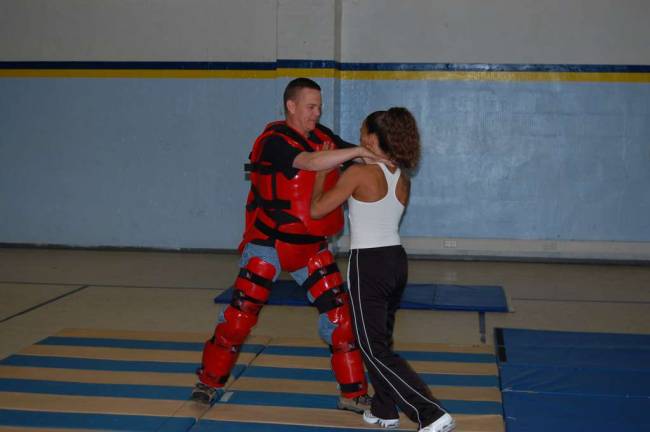Column: Self-Defense Classes, Only a Start in Tackling Assaults

By Rebecca Hoffman It was almost two weeks ago that Speaker Christine Quinn held her first free self-defense class in Central Park. This event was in response to an increased number of sexual assaults on women in the city, most notably an incident involving the rape of a 73-year-old woman in Central Park. While free self-defense classes are great and the fact that the local government is taking steps to intervene is commendable, what does all of this really serve to accomplish? Not much. One or two classes are hardly going to educate all of New York. Furthermore, it doesn't even touch on the real problem: the attackers themselves. Sexual assaults play a larger part in more people's daily lives than most people realize. Blogs like "Who Needs Feminism" and "Project Unbreakable" have new women, and men, submitting their personal stories of assault and survival on a daily basis. These sites create a safe place for victims and survivors to speak out about what has happened to them. Whether it's something as simple as an inappropriate catcall or something as violent as a rape, sexual assaults are taking place far too frequently. Making a community for survivors, either online or in self-defense classes, is a strong platform for change, but it is only the foundation for it. The internet provides a voice for survivors and victims of sexual assault crimes in a way that has never been done before. Speaking out in a safe and unthreatened way is often the first step to healing, but it also serves to raise awareness about these sorts of crimes. This awareness then hopefully helps educate potential victims and attackers on how wrong this behavior is to accept and inflict. Being vocal and raising awareness is a good step in educating a new generation on respectful and appropriate behavior. However, speaking out against attacks is part of the aftermath of an assault and not a part of uprooting the original problem-the attacks themselves. On the other end of the spectrum, self-defense classes can be a great precautionary measure to an assault. But again this is something being done to help protect a would be victim from an assault; and so works under the assumption of there being an assault. Neither self-defense nor speaking out on an attack manages to directly address or change the actual problem, which is: the initial assault and assaulter. Both tactics focus on preparing women, and potential victims, for a problem instead of working on stopping the problem. The heart of the problem is that attackers think they can attack women and get away with it. To truly address this issue would require recalibrating our thinking as a community. The focus should not be on protecting victims, but on preventing there even being victims. For there to be any real, significant, and lasting change the community's focus needs to move from the victim to the attacker. Educating survivors and potential victims on how to protect themselves is a great start, but that's all it is-a start. Actual change will come with educating and, in turn, preventing would be attackers, but this is, undeniably, a much bigger and more difficult issue to tackle.